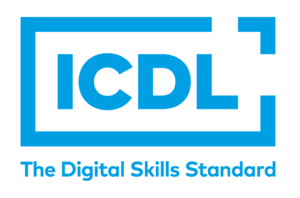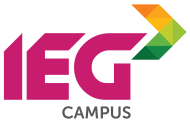
Computing
Start on:
Contact us
Duration:
2 days
Study Mode:
Online / Blended Weekend intensive delivery
TBC

ICDL ASIA
ICDL Foundation is an international organisation dedicated to raising digital competence standards in the workforce, education and society. Our certification programs, delivered through an active network in more than 100 countries, enable individuals and organisations to assess, build and certify their competence in the use of computers and digital tools to the globally-recognised ICDL standard.
As a non-profit social enterprise, ICDL Foundation benefits from the unique support of experts from national computer societies and partners worldwide to develop vendor-independent standards that define the skills and knowledge required to use digital technology effectively. We work with education and training partners, local and regional authorities, national governments, international development organisations as well as public and private sector employers in all sectors, in the delivery of our programs.
The quality and reputation of ICDL is built on over twenty years of experience in delivering our certification programs to over 16 million people and in more than 40 languages worldwide, with more than 2.5 million ICDL tests taken annually. Our success is maintained by our ongoing innovation in certification program development, our commitment to rigorous test design methodologies, and consistent adherence to our quality assurance standards.
ICDL Foundation supports the initiatives of National Operators of the program in Europe and the Arab States from our headquarters in Dublin, Ireland and our ICDL Europe office in Brussels, Belgium. We have also established three regional operations – ICDL Africa (based in Rwanda), ICDL Asia (based in Singapore) and ICDL Americas (based in Panama). All ICDL Foundation operations work closely with regional, national and local partners to develop the global network of ICDL Accredited Test Centres.
Computing
The Computing 1.0 module sets out essential concepts and skills relating to the use of computational thinking and coding to create simple computer programs.
Many job roles that are not explicitly focused on software development required an understanding of the principles of computational thinking and the foundations of coding. The Computing module covers core computational thinking techniques like problem decomposition, pattern recognition, abstraction and algorithms as well as practical skills relating to coding.
Module Overview
| Category | Skill set |
|---|---|
| Computing terms |
|
| Computational thinking methods |
|
| Starting to code |
|
| Building using code |
|
| Test, debug and release |
|
What are the benefits of this module?
- Covers the key skills and main concepts relating to computational thinking and coding.
- Certifies best practice in computational thinking and coding.
- Introduces concepts and skills that are essential for anyone interested in developing specialised IT skills.
- Assists in developing generic problem solving skills that are useful for everyone.
- Developed with input from subject matter experts and practising computing professionals from around the world. This process ensures the relevance and range of module content.
Learning outcomes
On completion of this module the candidate will be able to:
- Understand key concepts relating to computing and the typical activities involved in creating a program.
- Understand and use computational thinking techniques like problem decomposition, pattern recognition, abstraction and
algorithms to analyse a problem and develop solutions. - Write, test and modify algorithms for a program using flowcharts and pseudocode.
- Understand key principles and terms associated with coding and the importance of well-structured and documented code.
- Understand and use programming constructs like variables, data types, and logic in a program.
- Improve efficiency and functionality by using iteration, conditional statements, procedures and functions, as well as events and
commands in a program. - Test and debug a program and ensure it meets requirements before release.
ICDL Computing
Ready to apply?
Still not convinced?
